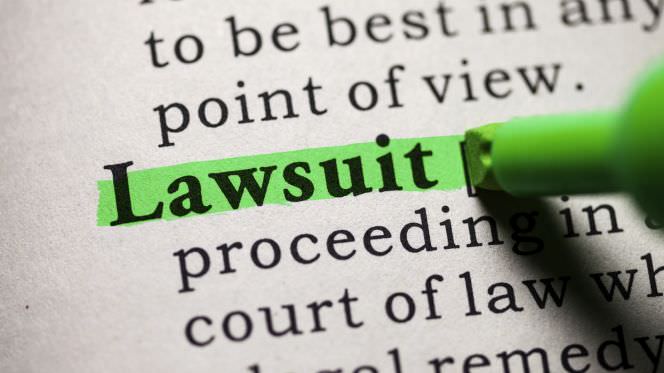Shreveport, the seat of Caddo Parish, is tucked in Louisiana’s north-west corner, bordering small towns in Texas and Arkansas. It has bayous, weeping willows, shotgun houses, and blues music, but lacks joie de vivre. It is the sober man’s New Orleans.
The area distinguishes itself with a grim fact: between 2010 and 2014, it sentenced more people to death than any other place in the US. It is also the home of Dale Cox, Caddo Parish’s former acting district attorney, a man responsible for a third of Louisiana’s death row inmates since 2011.
Cox’s reputation came to a head last year, when Rodricus Crawford was sentenced to death for smothering his one-year-old son amid a flurry of doubts and unanswered questions about the case. Cox had been instrumental in getting the death penalty verdict, and features by 60 Minutes and the New Yorker had depicted him as a callous man dismissive of racism, working in an office where a colleague had a Ku Klux Klan leader’s portrait hanging on a wall.
This might shock outsiders far more than Caddo Parish residents. According to researchers who used Google searches data of the N-word to measure racism, it is among the most racist places in the country.
And yet, last November, an African American judge named James Stewart was elected to succeed Cox, largely thanks to the town’s large black voting block.
Although black DAs are rare, they aren’t so unusual as to warrant the kind of national attention Stewart’s campaign received. The lingering question in everyone’s mind: can a black DA change a criminal justice system tarnished by accusations of racism? Would his election be more than just a symbolic victory?
I met Stewart in an office at Zion Baptist Church, where he is a longtime member. He is an archetypal southern black man: deep voice, dark skin, big body. He is confident and intelligent but also matter-of-fact and approachable – a winning political combination.
Raised in Shreveport, his father was a postman, which made him well-to-do. A child of desegregation, he was among the first wave of black students to integrate the city’s main high school. He bypassed attending one of the state’s black colleges – rare at the time – in favor of the relatively new University of New Orleans, and worked as a parish prosecutor, then judge.
Last summer, around the time national media began scrutinizing Caddo Parish’s capital cases, billboards appeared around the city beseeching Stewart to run. A short while later, a group of about 40 attorneys – the most prominent of whom were white – held a press conference to publicly cajole him into running. Referring to it as his “calling” moment, he finally decided to answer yes.
District attorneys arguably have the most powerful role in the criminal justice system; they get more than 90% of the accused to take plea bargains before they ever see a judge. While people of color comprise a majority of those in the criminal justice system, their fates are controlled by prosecutors who are 95% white, and race is no predictor of how black prosecutors will approach cases. Scant research has been done to consider how this affects sentencing outcomes; however, the only variance found in a study of the New York County district attorney’s office was that black and Asian prosecutors made more punitive demands in plea deals involving misdemeanor marijuana charges.
Even when the DA is black, it is difficult to know how they will approach issues such as the death penalty. There was hope that Stewart would establish a division similar to Dallas’ Conviction Integrity Unit, which was established by its former black district attorney to investigate old cases and exonerate the innocent.
Stewart has already sent clear messages that this was not to happen. He has already decided to seek the death penalty against Grover Cannon, a black man accused of killing a police officer. In doing so, he takes an even harder line on the issue than black California attorney general Kamala Harris, who has said she personally opposes the death penalty yet is appealing a federal judge’s ruling that California’s death penalty is unconstitutional.
He has also remained quiet on the Rodricus Crawford case, even though he has the power to drop charges or dismiss an indictment, even if the person has already been convicted – which is what Crawford, who was sentenced to death, is hoping for.
Cecelia Trenticosta Kappel, senior attorney with the Justice Center, says the hope was that Stewart would “see that the state’s theory that Rodricus Crawford decided to murder his son out of nowhere is implausible, unsupported by evidence, and based on abject stereotypes”.
According to Crawford’s attorneys and evidence submitted with his petition, she says that “the state’s case for capital murder essentially rested on two pieces of evidence: brain swelling and a busted lip. New evidence proves that the brain swelling was absolutely inconsistent with smothering; and had the state’s forensic pathologist followed standard medical protocol, the timing of the lip injury could have been conclusively proven.”
In spite of these facts, Stewart’s office has filed an opposition brief to Crawford’s petition that his sentence be overturned. The brief, which rehashes the former prosecutor’s arguments in favor of the death penalty, is eerily reminiscent of Cox. So too is Stewart’s perspective on religion. “Some people get caught up in the separation of church and state. To me, all authority comes from God,” he said during an interview.
Still, which “God” will you get? The one that has entire communities asking for mercy, or the one that had Cox demanding death?
“We got to separate the wheat from the tare,” Stewart explains. “We can’t allow some people who could be saved to be caught up. That’s the hardest part of the job, identifying them: the murderers and the rapists, clearly, they are gone. But our closet is getting full and so it is starting to spill back out. Economically, we can’t afford mass incarceration. So we’ve got to deal with the problem, but it is not the DA or the sheriff’s problem. It is a community problem.”
No one would hope for Stewart to show greater restraint in death penalty cases more than Marty Stroud, a white lawyer with a distinguished legal career.
In 1984, Stroud prosecuted Glenn Ford, a black man convicted of murdering jeweler Isadore Rozeman. Ford was sentenced to death by an all-white jury. He spent 29 years in isolation at the Louisiana state penitentiary, and was diagnosed with terminal lung cancer in 2014. After an investigation by the Innocence Project, he was declared innocent and received a full exoneration that same year. He went to his grave four months after his release, aged 65, fighting the state for $330,000 in compensation.
Following the exoneration, Stroud couldn’t stomach the role he had played. He asked the Louisiana Bar Association to discipline him, and wrote the kind of confessional typically reserved for the recesses of one’s mind or a priest.
The letter, which appeared in the Shreveport Times, stated:
I was not as interested in justice as I was in winning … At the time this case was tried there was evidence that would have cleared Glenn Ford. The easy and convenient argument is that the prosecutors did not know of such evidence … Had I been more inquisitive, perhaps the evidence would have come to light years ago. But I wasn’t, and my inaction contributed to the miscarriage of justice in this matter.
Stroud, a practicing Catholic, says that though he agrees with the church’s position against the death penalty, after what happened with Ford he would be against it regardless.
Counsel were appointed [to Ford]… neither of which had tried a felony or any type of criminal case. They had no assets, no investigators, no money for experts or consultants.
Compounding the issue for Stroud was the all-white jury.
This happened in 1984, and I can tell you that at that time I did not appreciate the nuances of the race question… I thought at the time it was fair but looking back on it, it wasn’t fair.
The problem with jury bias has persisted ever since. Last year, a study found that Caddo Parish prosecutors used peremptory challenges three times as often to strike black potential jurors as others during the last decade.
It turns out, a critical mass of black jurors matters. Research by Reprieve Australia, a group that opposes the death penalty, said the likelihood of an acquittal rose with the number of black people on the jury. Using the Reprieve study results, the New Orleans office of the Roderick and Solange MacArthur Justice Center, a civil rights law firm, filed a class action lawsuit claiming Caddo Parish district attorney’s office “intentionally and unconstitutionally manipulated jury selection to limit the number of African Americans selected to serve on juries in criminal trials”.
This is, in fact, another area in which Stewart has a great deal of power. African Americans are most often excused from juries because the prosecutor objects. Were Stewart to issue new guidelines to his attorneys, the jurors could be more diverse.
In Caddo Parish, at least one of Stewart’s supporters remains sober-minded.
“I don’t think electing an African American has proven in any quarters of life to be the panacea,” said Reverend Theron Jackson, who pastors Morningstar Baptist Church.
An early petitioner in the jury bias lawsuit, Jackson is a bit of a renegade. His approach to the ministry hints at the liberation theology tradition, which came under scrutiny with the emergence of Barack Obama’s minister Jeremiah Wright and his sermon God Damn America. It’s a theology that sees God as concerned with the poor, weak and oppressed.
Jackson is adamant. “A DA can’t save this city. He can do his part, but if you’ve got seven things dysfunctional, you change one, you still got six that are dysfunctional.” In the space of an hour, Jackson mentions race relations, the lack of educational opportunities in the region, and economic deficiencies. He even criticizes the city’s biggest player: the black church.
But Jackson believes an even bigger problem lies at the heart of Caddo Parish – something that needs to be fixed and foremost if any progress is to be achieved: the people’s mentality.
“One of my biggest questions about slavery has always been: how do you have eight people on a plantation who are white and 85 who are black, and they don’t change something?” Jackson said. “Well, you have to psychologically make a slave before you physiologically make a slave, and they work hand in hand. I think this still happens here.”
To this day, Shreveport’s status as one of the most segregated cities in the nation remains – so much so that the I-49 highway that splits the city is known as the Mason Dixon line. The Confederate monument outside the courthouse, where a confederate flag flew until recently, suggests there is still far to go to free the city from its history.
By 1850, the US Federal Slave Schedule reported 5,763 slaves with 466 slaveowners in the region. From 1862 to 1865, Shreveport was the Confederate capital of Louisiana, the last Confederate capital to fall. After the civil war ended, a different, more deadly form of terror set in for the newly freed.
I think lynching of black people is going on today, but they use an invisible rope, so we don’t see it as clearly
Outnumbered white racists turned to intimidation to assert their political will. They established terrorist organizations such as the Knights of the White Camelia, operating across the south. Between 1866 and 1875, some 3,500 people in Louisiana, mostly African Americans, were estimated to have been victims of violence, ground zero of which was “Bloody Caddo” Parish, where 45 documented killings of black Americans by white mobs took place.
Reverend Harry Blake, who worked under Dr King in the Southern Christian Leadership Conference, grew up on a plantation just outside Shreveport. He believes it was easier to organize for civil rights years ago.
“Racism was more overt. Doors were closed to us everywhere, and we were told to like it. Doors are open now, so we’re not as concerned.” Now black citizens attend integrated schools and churches. This might look like progress, but the black community is not progressive. This is a place where a black neighborhood retains the name of a Confederate general, and the black elite choose to live in neighborhoods bearing the name “plantation”.
Blake sees what they don’t. “I think lynching of black people is going on today, but they use an invisible rope, so we don’t see it as clearly.”
Crawford, who sits in isolation at Angola awaiting the outcome of his appeal, believes he is seeing things clearer than ever before, and he doesn’t see himself as powerless. He believes God is moving on his behalf:
“You know, I look at what’s happened in the past year with Dale Cox. The DA [Cox’s predecessor] dropped dead out of nowhere. Then the New York Times article comes out and all of a sudden there’s a spotlight on my case, and everybody is asking what to do about it when nobody cared before. Then Cox isn’t running for DA, and then Stewart wins and we’re looking at a whole new day now. I have to credit that to God. It’s the only thing getting me through.”
As a child of Shreveport myself, I was taught Bible verses before I learned the alphabet and attended church three days a week. I have read the Bible, cover to cover, twice. I know Jesus. I never saw him fix a thing. I have seen Jesus inspire people to endure, to repent, to give, to strive, to grow, and to sacrifice.
This is the Jesus Caddo Parish needs, not the Miracle Jesus we invoke when we don’t want to confront and solve complex problems. A black district attorney can’t save Caddo Parish, but Stewart speaks like a man who embodies this savior.
“Justice is a biblical term. Jesus came for justice. Justice is really just treating people fairly and in a God-like way, loving people … When I was on the bench, I always made sure I determined what was right and what was wrong. Not necessarily what was politically correct or what people wanted to hear. That’s the way I operate. However it cuts is the way it cuts.”
We pray this is so.
Source: www.theguardian.com




